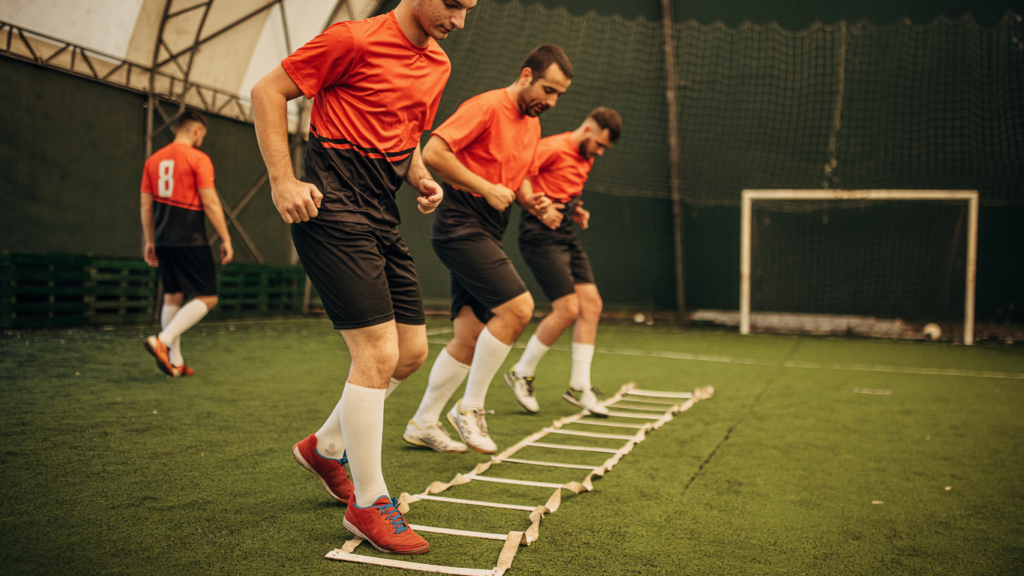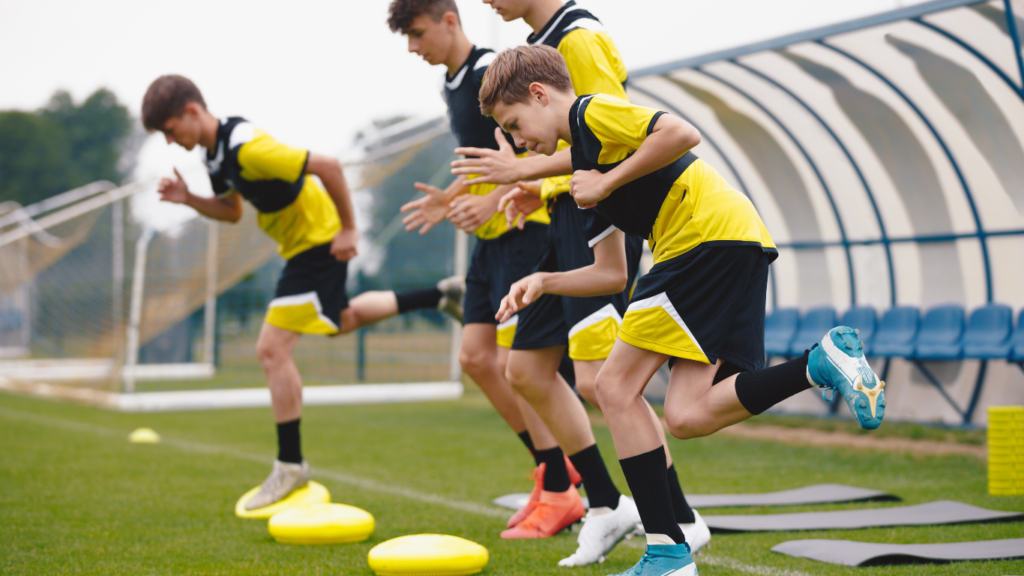The Link Between Physical Training And Mental Toughness
Physical training enhances mental toughness by challenging the mind to push beyond perceived limits. Intense workouts demand sustained effort, fostering resilience when faced with fatigue, discomfort, or adversity. Repeatedly overcoming these challenges builds confidence in one’s ability to handle pressure.
Consistency in training develops discipline. Maintaining a regular workout schedule, despite distractions or lack of motivation, strengthens self-control and commitment. This discipline translates into perseverance in non-physical aspects of life, reinforcing mental fortitude.
Focus improves through structured physical routines. Exercises like weightlifting or interval running require attention to technique, form, and timing. Remaining engaged during these activities sharpens mental focus and reduces susceptibility to external distractions.
The body’s stress response in physical training fortifies the mind. High-intensity sessions activate stress hormones like cortisol, which the mind learns to manage over time. This adaptation helps mitigate stress in real-world scenarios, promoting clarity and emotional stability under pressure.
Benefits Of Building Mental Toughness
Developing mental toughness through physical training strengthens the mind in multiple ways. It equips me to handle challenges, persevere, and maintain clarity under pressure.
Improved Focus And Resilience
Physical training hones my focus by requiring undivided attention on:
- movements
- form
- breathing
Complex exercises like deadlifts or yoga poses demand mental presence to execute correctly. Facing discomfort during training teaches my mind to persist, fostering resilience in overcoming fatigue or distractions. Consistent effort builds my ability to concentrate longer and adapt to setbacks, both in workouts and daily tasks.
Enhanced Emotional Control
Intense physical challenges help me manage emotional responses. Stress from rigorous exercises mirrors real-life pressures, allowing me to practice staying calm and collected. My body learns to regulate cortisol levels, improving emotional stability under strain. As I succeed in workouts despite fatigue, I build confidence, reducing feelings of frustration or self-doubt when overwhelmed.
Physical Training Techniques To Foster Mental Toughness

Physical training provides effective tools for cultivating mental toughness. Specific methods, such as endurance-focused exercises, HIIT, and mindfulness integration, target key aspects of resilience and discipline.
Endurance-Based Activities
Endurance activities challenge mental persistence by requiring sustained effort over extended periods. Long-distance running, swimming, or cycling demand consistent energy output, pushing the mind to confront fatigue. Engaging in these activities helps build patience and trains the mind to overcome discomfort.
For example, marathon training emphasizes pacing strategies that can carry over into stressful situations, promoting long-term focus. Setting measurable milestones, such as completing a specific mileage per week, reinforces goal-oriented thinking.
High-Intensity Interval Training (HIIT)
HIIT develops adaptability and stress management by combining short bursts of intense effort with brief recovery. Sessions like sprint intervals or circuit training target both physical exertion and mental fortitude. The fluctuating intensity compels the mind to refocus quickly under strain.
This method improves mental strength by simulating high-pressure scenarios. For instance, during a sprint interval, managing breathing and pacing enhances decision-making under stress. Tactically increasing difficulty levels further encourages progression in mental resilience.
Incorporating Mindfulness In Physical Training
Integrating mindfulness enhances awareness and emotional control during workouts. Practices like controlled breathing or mindful stretching increase focus on the present, reducing distractions. Yoga and tai chi are excellent examples that blend physical movement with mental discipline.
During strength training, I focus on precise form and count repetitions deliberately to anchor my thoughts. This application of mindfulness improves emotional regulation, ensuring clarity even during intense physical challenges.
Overcoming Mental Barriers Through Physical Challenges
Overcoming mental barriers during physical training strengthens mental resilience and improves decision-making under pressure. Engaging in challenging exercises forces the mind to confront discomfort, fear, and doubt, transforming them into opportunities for growth.
Pushing Beyond Comfort Zones
Stepping outside comfort zones during workouts fosters adaptability and builds mental toughness. When I push through fatigue during a heavy lift or continue running past exhaustion, I teach my mind endurance by refusing to quit under pressure. This practice helps reframe discomfort as a sign of growth rather than a barrier. For instance, I increase intensity or duration gradually, focusing on progress rather than immediate perfection, to condition my mental fortitude. Physical challenges provide controlled environments, enabling me to safely experience struggle and implement constructive responses.
Tackling Fear And Self-Doubt
Facing fear and self-doubt during physical challenges strengthens confidence and emotional control over time. I encounter these emotions during difficult tasks like performing new exercises or attempting heavier weights. Repeatedly confronting these moments trains my mind to interpret fear as an opportunity for achievement rather than failure. For instance, I break goals into smaller milestones, like increasing repetitions weekly, which makes progress manageable and encourages perseverance. As I surpass self-imposed limits through physical training, I reinforce belief in my ability to handle life’s uncertainties with the same determination.
Success Stories: Inspiring Examples Of Mental Toughness
Various athletes and individuals exemplify how physical training builds mental toughness. Their stories highlight perseverance, adaptability, and growth under challenging conditions.
- David Goggins: Known as one of the toughest endurance athletes, Goggins pushed through obesity, Navy SEAL training, and ultramarathons. His mental transformation began with consistent physical training, proving that discipline and grit can overcome mental and physical barriers.
- Kerri Strug: During the 1996 Olympics, Strug famously performed a vault with an injured ankle, securing a gold medal for Team USA. Her ability to focus under immense pressure reflected the mental strength cultivated through years of rigorous gymnastics training.
- Jocko Willink: A former Navy SEAL commander, Willink credits daily physical routines with fostering discipline and emotional resilience. His example shows how consistent training develops a robust mindset for handling adversity.
- Eliud Kipchoge: Renowned for breaking the 2-hour marathon barrier, Kipchoge attributes his success to relentless physical and mental preparation. His story demonstrates the importance of endurance training in building persistence and clarity under pressure.
These examples inspire not through genetic advantage but through dedication to physical routines that forged unshakable mental toughness.





